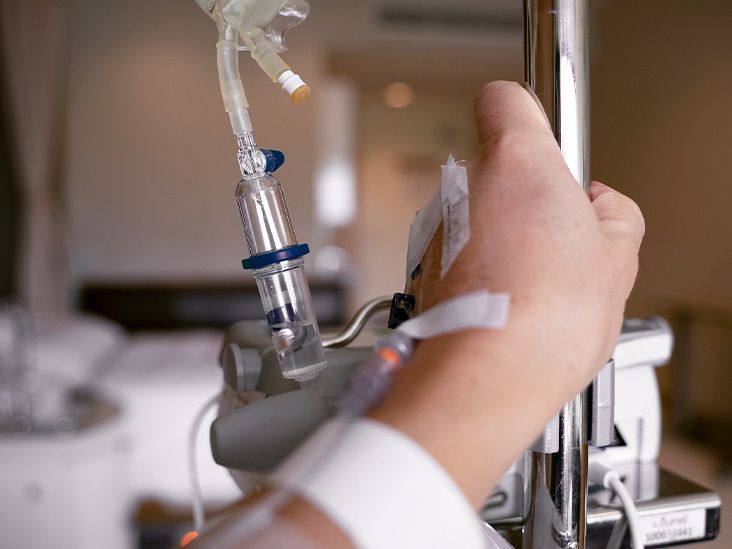Researchers are continuing to study nasopharyngeal carcinoma (NPC) to understand how it develops and what it responds to. Their goal is to provide better outcomes and possible prevention.
NPC is a rare form of head and neck cancer. It begins in the nasopharynx, a small, hollow area that connects the nasal airways to the throat.
NPC affects less than
This article explores the current research on NPC.
Researchers are continually looking into new ways to treat NPC. They test new or different treatment methods in clinical trials. Clinical trials involve a series of increasing large sample sizes of people to determine the overall safety and effectiveness of new treatment methods.
A person may be able to participate in a clinical trial, but they will need to apply and get accepted into the trial. Interested individuals can ask their doctor about any local trials that may be starting. They can also use online search tools by the
Chemotherapy
Chemotherapy is currently a standard treatment for NPC. Researchers are looking at how different chemo medications and the timing of their application affect treatment outcomes.
According to the
A 2020 study notes that several studies have shown that the approach of providing chemotherapy first works well and improves outcomes by
In a 2019 study, researchers tested different chemotherapy approaches on just under 500 people. They found that those who received induction chemotherapy before chemoradiation had improved outcomes than those who received only chemoradiation therapy.
Induction chemotherapy is the chemotherapy a person receives before undergoing additional cancer treatment. The goal is to destroy as many cancer cells as possible to offer the best possible chance of remission.
Radiation
Radiation
In a
Proton therapy is still in the clinical trial stage in the United States and is not yet widely available. Not all insurance may cover it, but it has a promising future as a treatment technology.
Immunotherapy
Immunotherapy is a newer form of cancer treatment. The therapy helps to train the immune system to attack cancer cells in the body.
Currently, a doctor may prescribe medications, such as PD-1 inhibitors, to treat recurrent cases of NPC. Researchers are looking at the effect of adding PD-1 and other immunotherapy to earlier treatments. In 2023,
PD-1 is short for programmed cell death. Immunotherapy using PD-1 inhibitors is also known as anti-PD-1 immunotherapy. PD-1 is a checkpoint inhibitor on immune cells. It binds to PD-1 on other cells and prevents T cells from attacking those other cells.
T cells are a type of white blood cells that help protect the body from infection and fight cancer. Some tumor cells contain large amounts of PD-1. This prevents T cells from doing their work. If PD-1 is inhibited, the body will be able to activate the T cells to help its immune system fight the cancer.
In a
Predicting outcomes
Researchers are looking into how different biomarkers may affect outcomes and treatment success.
One area of interest is the EBV DNA. In a
Their findings generally support an earlier study from
A 2024 review suggests that combining radiotherapy with immunotherapy can enhance treatment outcomes.
Though the exact cause is unknown, many cases of NPC occur due to the presence of Epstein-Barr virus (EBV) infection. Researchers are continuing to explore how EBV and other risk factors, such as genetics, interact to cause the development of cancer.
By understanding EBV better, treatments may become more individualized and effective. In a 2020 study, researchers noted that targeting EBV proteins may provide an effective form of treatment for NPC.
Researchers continue to examine different forms of treatment for NPC. Exploring treatment options helps identify new therapies, improve existing ones, and provide better-targeted therapies.
Research is looking at how EBV plays a role in the development and potential treatment of NPC. Some studies suggest that targeting the virus itself may help prevent or treat the cancer, which could improve outcomes for people.
Individuals interested in participating in a clinical study can discuss it with their doctor or treatment team. They may be able to provide recommendations on local studies they are eligible for. A person can also search online for clinical studies and apply for relevant ones.

